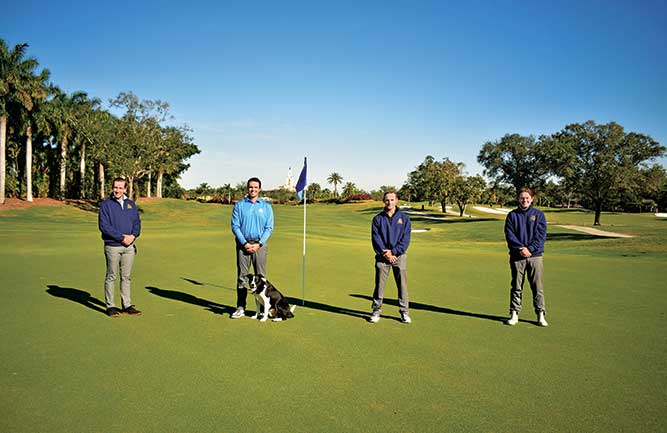GGA Partners unveils survey of private golf members
Private club members are worried about their club’s financial well-being in the aftermath of the global pandemic, and only 27 percent expect operations to revert to the way they were before the challenges imposed by the coronavirus. But most say they will retain their membership if their club holds the line on dues increases, maintains the quality of its facilities and makes returning to the club safe for themselves and their families.
Those were among the findings of a survey of private golf club members conducted by GGA Partners, an international consulting firm and advisor to many of the world’s most successful golf courses, private clubs, resorts and residential communities. The study was conducted among members of U.S. and Canadian private clubs with survey participants averaging 12 years of club membership.
Survey respondents were not optimistic about their club’s financial position with 71 percent saying they expect a decline in the financial health of their club. Fifty percent cited current economic conditions and 42 percent said a drop in member spending would lead to the decline, which 20 percent predicted would be “significant.”
In response to downward financial pressures, members expect their clubs to adapt operationally rather than financially by scaling back high-touch areas of operations to simultaneously reduce operating costs and lower the risk of COVID-19 transmission.
Rather than increasing revenue through dues or membership growth, almost three-quarters of members would prefer their club make near-term, operational changes – including reducing dining operations (61 percent) and administrative expenses.
Despite the multiple ways their lives have been affected by the pandemic, roughly four in five members report either an increase in importance or no change in the club’s importance in their lives. Friendships, the quality of amenities and recreational activities were cited as factors driving the club’s importance. Twenty-one percent say the club’s importance has diminished because of the pandemic.
“The COVID-19 pandemic has not negatively impacted the relevance of the club in the lives of most private club members. If anything, its importance has been reinforced,” said Henry DeLozier, a partner in the Toronto-based firm. “Together these results suggest that the importance and relevance of their club experience are strengthened during emotionally challenging times.”
When asked how they would (or have) approached returning to their club in the wake of the coronavirus, 39 percent said they would (or have) returned without any restrictions imposed by the club. However, 61 percent said their return was contingent on certain conditions: 50 percent said they would return if social distancing was maintained and government guidelines enforced; 11 percent were more hesitant, saying they would not return until the club had been operational “without issues” for a trial period or until rigorous virus testing capabilities were implemented or a vaccine were available.
Members said they also would consider leaving their clubs if dues increases exceeded typical annual hikes (50 percent) and the club’s facilities deteriorated (41 percent).
“The good news for club operators is that scaling back operations, reducing services and limiting access to amenities and activities – essential maneuvers to safely and responsibly navigate a virus-plagued social environment – are unlikely to cause significant membership attrition,” DeLozier said.










